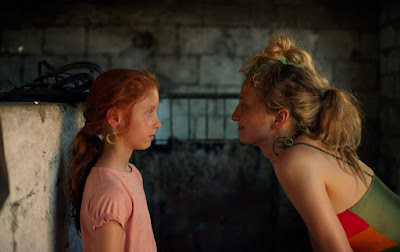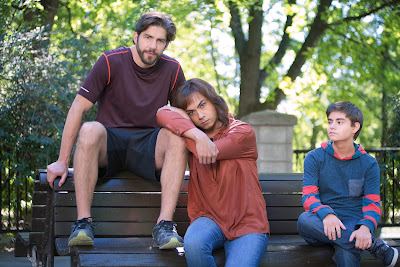Said to have been filmed while its director was wheelchair-bound and making its debut at the 1976 Cannes Film Festival just two days before he died, L'INNOCENTE, the final movie from Luchino Visconti, arrives on Blu-ray in a lovely transfer that offers up quite an array of splendors that those of us who loved the filmmaker's work will certainly appreciate.
Gorgeous interiors, eye-popping in their sumptuous detail, compete with soulful performances from the three beautiful actors in leading roles, while lushly-shot, highly sensual sex scenes plus some full-frontal, male and female nudity keep the eyes from ever being tempted to look away from the Panavision-size screen.
With an intelligent screenplay by Visconti (shown at left) and two of his usual collaborator -- Suso Cecchi D'Amico and Enrico Medioli -- adapted from the novel by Gabriele D'Annuzio, the movie tackles some of this filmmaker's favorite themes, from love, trust, jealousy and betrayal to the entitlement of the elite and the uses/abuses of guilt.
The plot involves an atypically randy and straying husband (he's honest with his wife about his affairs), played by Giancarlo Giannini (below, at the height of his sexual attraction and prowess), his wife (Laura Antonelli, an Italian beauty also at the height of her own), and in an odd casting choice that pays off ten-fold, Jennifer O'Neill in the role of hubby's beautiful, wealthy, take-no-prisoners mistress.
When that wife (below) appears to have taken a lover of her own, the husband's world is turned upside down -- never more so than when said lover, after showering at the fencing club in which the husband is a member, steps out of the shower in front of that husband with his ample cock displayed, as if to ask, "Can you top this, buddy?" And, yes, for hubby, it's all downhill from there.
Tropical sickness, pregnancy, parentage and more enter into things but both Visconti and D'Annuzio are clearly more interested in the philosophical aspects of the story than they are in the sometimes heavily melodramatic events on view. This helps steady the movie from going overboard. As awful as circumstances get (do they ever!), Visconti's patience, cool calm and eye for beauty keep it all on course.
As fine as is each of the performances, however, the major surprise is Ms O'Neill (at left). This is by far the best performance TrustMovies has seen from this actress.
Yes, her Italian has been dubbed (and very well) but her keen intelligence, as well as an unusual power and strength, come through in fine fashion.
Perhaps this shows what a smart and talented filmmaker like Visconti could bring out of an actress, or maybe simply what the actress herself is capable of that no director/writer had yet tapped into near fully enough.
As usual, with the Blu-rays from Film Movement, bonus material is on the slim side, but there is a very nice video essay, Reframing L'Innocente by Ivo Blom that shows the amazing detail and research Visconti demanded regarding the film's sets, costumes and production design, as well as a 16-page booklet of photos and an essay from author Dan Callahan.
From Film Movement Classics, in Italian with English subtitles and running 129 minutes, L'Innocente hit the street last week -- on Blu-ray, DVD and Digital -- for purchase and/or rental.
























































